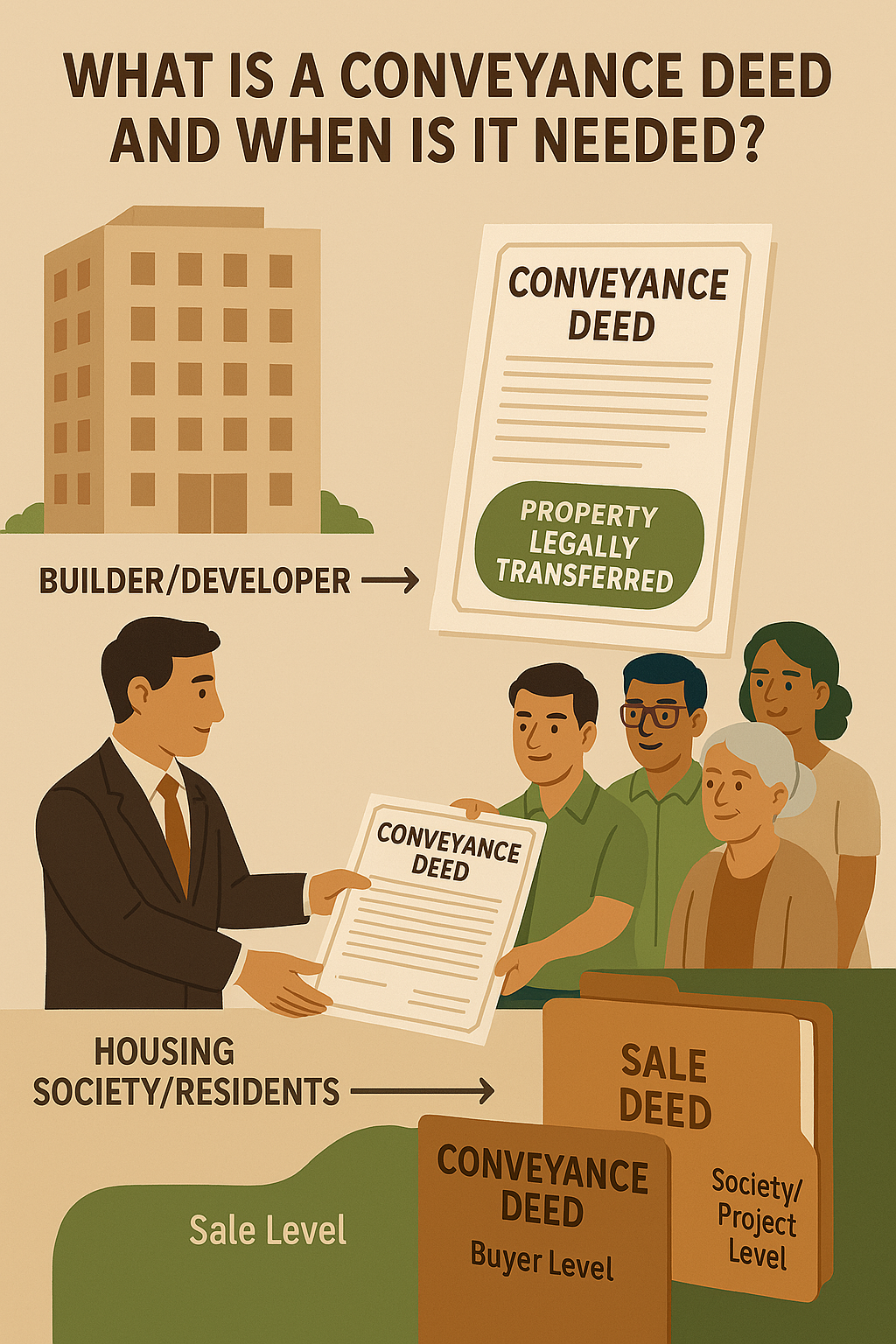Conveyance Deed in Real Estate: Meaning & When It’s Required

A conveyance deed is a legal document that transfers ownership of property from one party to another. It’s broader than a sale deed and includes transfers through sale, gift, lease, exchange, or relinquishment.
In housing societies or redevelopment, a conveyance deed is crucial for transferring land and building rights from the developer to the society. Without it, flat owners only have possession—not full legal ownership of common areas or land.
Sale Deed vs Conveyance Deed
A sale deed is a type of conveyance deed used specifically for property sales
A conveyance deed covers all types of ownership transfers, including society handovers and redevelopment cases
Sale deed = buyer gets individual flat ownership
Conveyance deed = society gets collective ownership of land + common areas
In redevelopment, the conveyance deed allows the society to legally appoint a new developer and initiate reconstruction.
- Lakshadweep
- Delhi
- Puducherry
- PROPIINN
- Arunchal Pradesh
- Assam
- Bihar
- Chhattisgarh
- Goa
- Gujarat
- Haryana
- Himachal Pradesh
- Jharkhand
- Karnataka
- Kerala
- Maharashtra
- Madhya Pradesh
- Manipur
- Meghalaya
- Mizoram
- Nagaland
- Odisha
- Punjab
- Rajasthan
- Sikkim
- Tamil Nadu
- Tripura
- Telangana | Andhra pradesh
- Pulse
- Uttar Pradesh
- Uttarakhand
- West Bengal
- Andaman and Nicobar Islands
- Chandigarh
- Dadra and Nagar Haveli and Daman and Diu
- Jammu and Kashmir
- Ladakh



